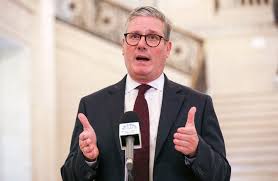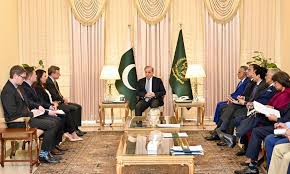UK’s new PM Starmer says ‘urgent’ need for Gaza ceasefire

The United Kingdom’s new prime minister has emphasised the need for a ceasefire and a two-state solution in calls with Israeli and Palestinian leaders, as Israel has shown no inclination to stop its devastating war that has killed more than 38,000 people.
Keir Starmer told Israeli Prime Minister Benjamin Netanyahu of a “clear and urgent need for a ceasefire, the return of hostages and an immediate increase in the volume of humanitarian aid reaching civilians”.
As the opposition leader, Starmer had been accused of not calling for a ceasefire, taking the same line as Conservative Prime Minister Rishi Sunak. He called for a ceasefire in February after intense public pressure months after opposing a ceasefire resolution in the UK Parliament. He was also accused of denying tickets to some pro-Palestinian members of the Labour Party, including former party chief Jeremy Corbyn.
At least five pro-Palestinian candidates, including Corbyn, won the elections as independents.
Starmer was widely criticised for saying Israel “has the right” to cut water and electricity supplies to Gaza on an LBC podcast last October. A Labour Party spokesperson denied Starmer justified water and power blockade, saying his comment was in response to a question on Israel’s right to defend itself.
More than 38,000 Palestinians have been killed, mostly children and women, in the Israeli military offensive launched in the wake of October 7 attacks by Palestinian groups on Israel. More than 87,000 people have been injured and thousands are missing.
According to a statement by the new British government, the prime minister added that “it was also important to ensure the long-term conditions for a two-state solution were in place, including ensuring the Palestinian Authority had the financial means to operate effectively”.
Starmer assured Netanyahu that the UK wishes to continue its “vital cooperation to deter malign threats” with Israel. Netanyahu’s office did not put out a statement after the phone call on Sunday.
Starmer also spoke with Palestinian President Mahmoud Abbas to reiterate the same priorities.
“Discussing the importance of reform, and ensuring international legitimacy for Palestine, the prime minister said that his longstanding policy on recognition to contribute to a peace process had not changed, and it was the undeniable right of Palestinians,” a Downing Street spokesperson told reporters.





